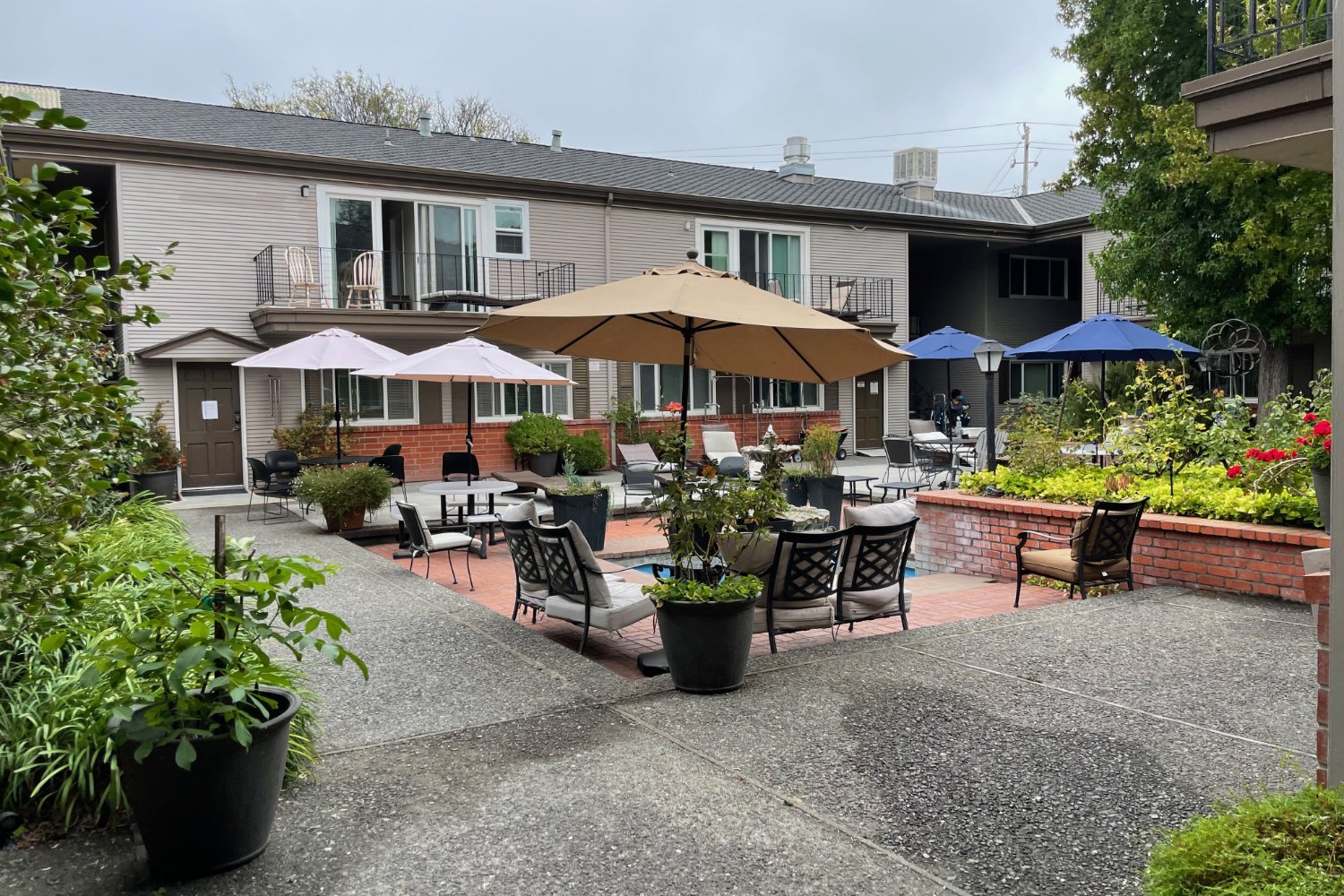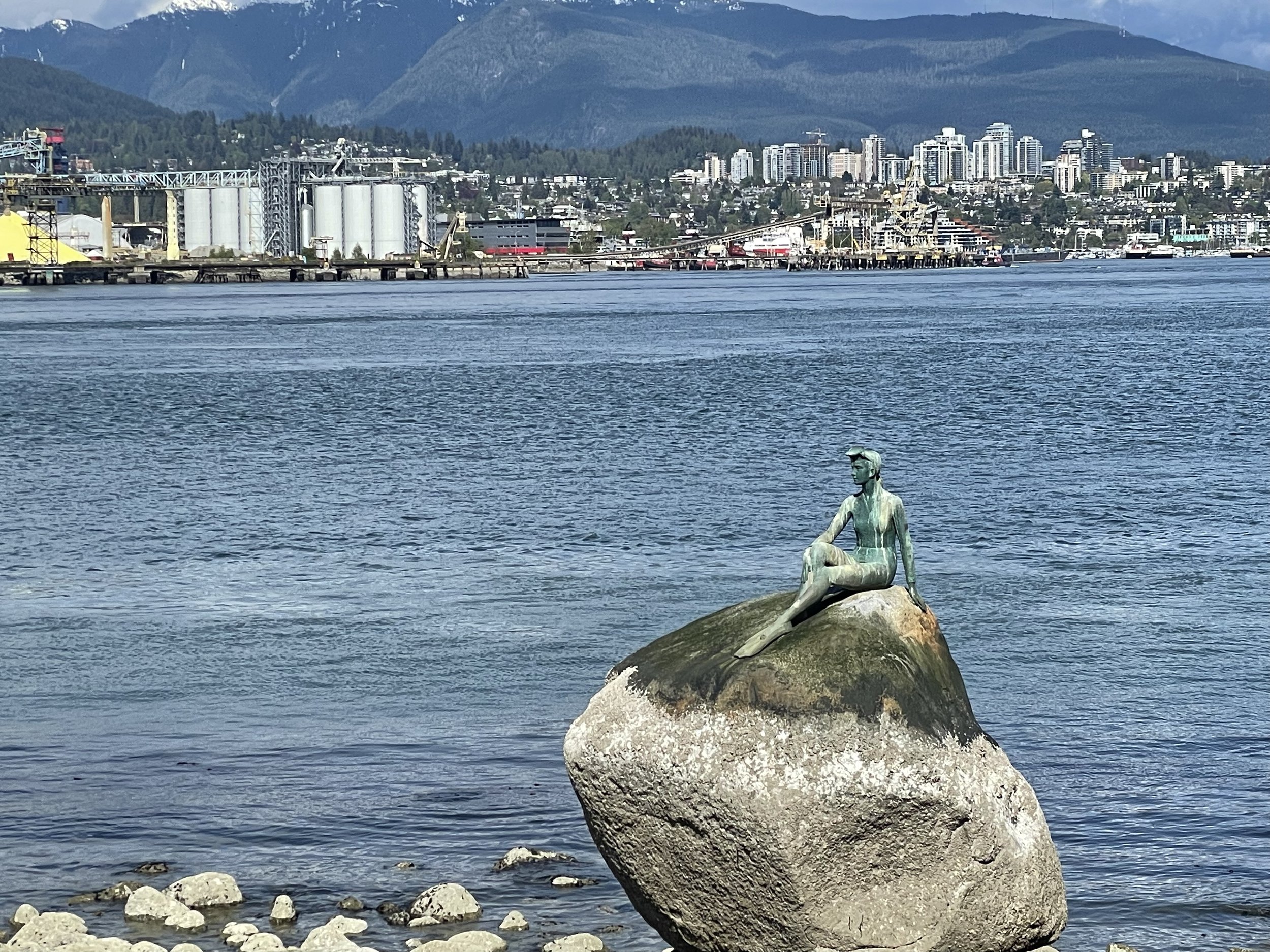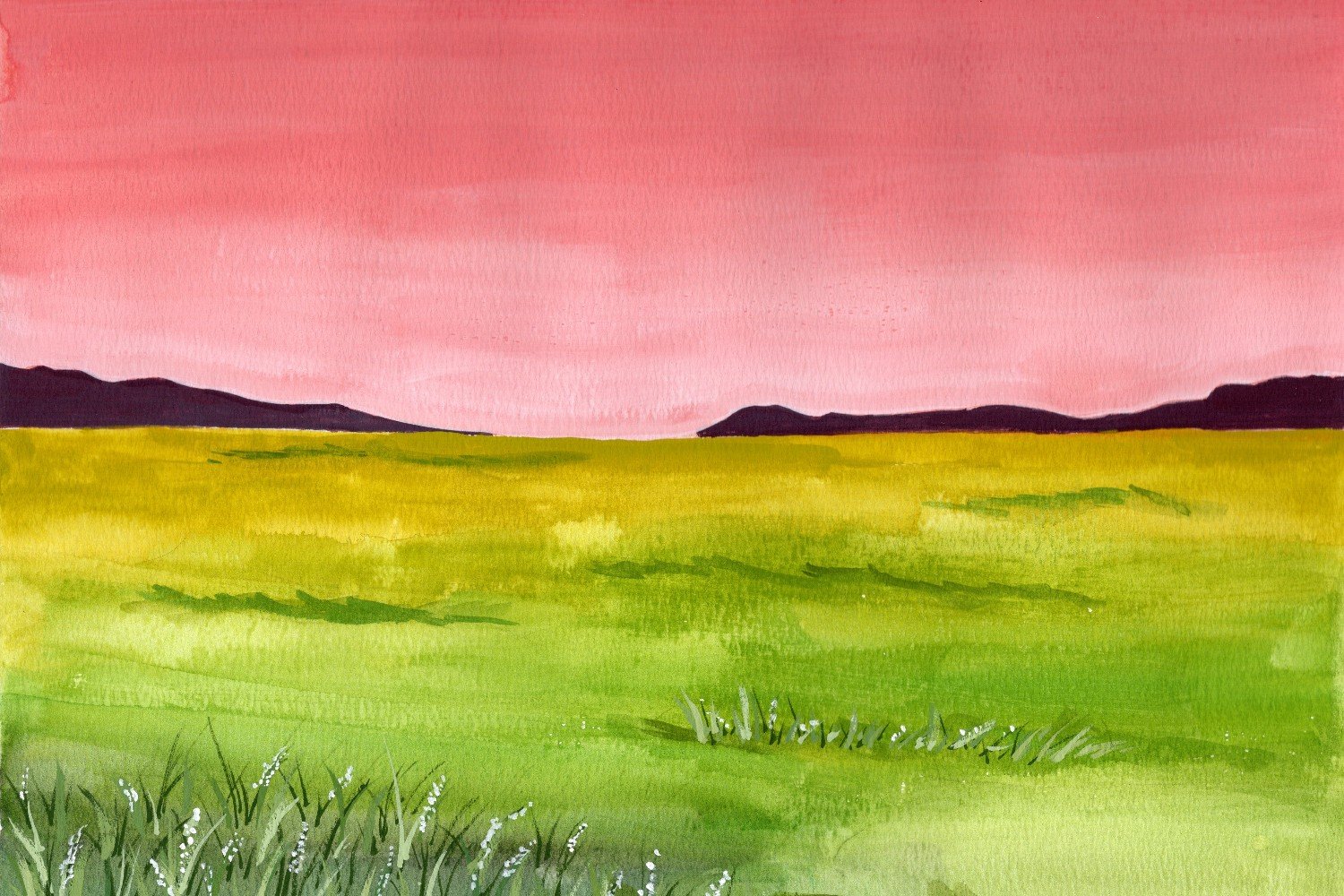Our Water-Only Fasting Experience
This essay is the second part of a multi-part series on my experiences going through a two-week water-only fast at TrueNorth Health Center in Santa Rosa, CA. Read the first part here.
We arrived at TrueNorth Health Center on a Sunday, in the middle of the afternoon. It was a relief to get here after the hectic week we had -- packing for three weeks, finishing up work, writing an essay for a Medium.com writing contest. Oh, and we had to eat only fruits and vegetables for three days to prepare for the fast, and the diet change gave me a detox headache while trying to get ready for the trip. That was not fun, and I felt apprehensive about how the fast itself would go.
TrueNorth was smaller than I'd imagined. The center consisted of a few buildings occupying about half of a residential block. The main building is a small apartment complex with a courtyard and fountain in the middle. We got checked in, including a medical check-in where they checked us for Covid-19 symptoms and took our heart rate, blood pressure, and weight. Our room was a spartan bedroom in a suite of three rooms, each with its own bath. We had a desk, a walk-in closet, and a TV with a Roku box and Blu-Ray player. This simple space was going to be our home for three weeks.
TrueNorth Health Center in Santa Rosa, CA
The day after we arrived was a whirlwind of appointments. First, our attending doctors gave each of us a physical and reviewed our medical histories for any contraindications to fasting. I had some minor complaints and mentioned that I had anxiety and a family history of high blood pressure since my blood pressure was a bit high that day. At the end of my appointment, he gave me a list of things to do and not do during the fast and sent me on my way.
Next up were the research study appointment and blood draw to get a baseline on our biomarkers. We met with their research team to get screened as volunteers for their current research study on loss of visceral fat during and after fasting. Visceral fat is around the organs, which increases inflammation and the risk of chronic illnesses, so losing it is good. Unfortunately, I didn't pass the screening because my blood pressure was too high at 130/80. They had already done the first part of the study on people with higher-than-normal BMI, and now they were looking for a control group with a "normal" profile, which I didn't qualify for. It was a bit of a bummer, but what concerned us was my blood pressure, which was at the level of stage 1 hypertension.
In the afternoon, we went to a lecture with Dr. Alan Goldhamer, the doctor who started TrueNorth almost 40 years ago with his wife. He gave a lecture on the detriments of animal products and the benefits of fasting. Dr. Goldhamer must have given this talk many times before and was having fun with it. "Don't have time to cook? Eat a banana! Peel and eat, that's it. Peel and eat. But don't get the order mixed up. Not enough variety? Peel the banana upside-down. It's a whole different experience."
He was articulate and entertaining, but the entire time I wondered, "how old is this guy?" He started TrueNorth almost 40 years ago, and he looked like a healthy 45- to 50-year-old. He probably didn't start this place when he was ten. I almost asked him, but there were so many other questions on fasting and nutrition, I didn't want to intrude with my silly question about his age. I later spoke with his son, who also worked there, and found out he was 62.
The First Three Days
The first day of fasting felt quite normal, other than the fact that we weren't eating. We had plenty of energy, and I could finish the essay I was working on (and stressing about). I had a mild headache, and the hunger would come and go, but other than that it wasn't too bad.
The second day, the fatigue hit us. This was the phase when the liver ran out of glycogen stores (our backup energy between meals) and before the brain switched to ketones for fuel. We watched TV on and off but mostly lay in bed and slept a lot (this would be the story for most of the fast). The hunger came and went and wasn't too bad unless we watched a film that showed food. I usually didn't think much about food in movies, but all food looked scrumptious on a fast, even ones I wouldn't otherwise care for. We watched the animated movie Vivo, and they kept showing croquetas (Cuban croquettes) and cookies. Now all I wanted was cookies. Besides the times when a movie or TV show made us look at food, the lack of it didn't bother me too much.
On day 3, we woke up with a little more energy than the day before. Tex said we must've crossed over to ketosis now. My mind was much clearer, and I didn't want to sleep all the time. Although physical movement still tired us quickly.
Even though the brain can run on ketones, the muscles still need sugar. When no food is available, the body supplies itself with sugar by breaking down some muscles. So they told us not to exercise too much since the more you moved, the more muscle it would need to break down for fuel. Yikes.
I couldn't imagine exercising much on a fast anyway. After walking to the courtyard, sitting for a while, then returning to our room (a distance of a few hundred yards total), I needed to nap for an hour to recoup.
Surprisingly, I had none of the stomach pains I had when I tried to fast on my own, and my headache went away after two days. The first three days were supposed to have the worst of the detox symptoms, and we fared better than I'd expected. Dr. Goldhamer said that once they started asking people to eat only fruits or vegetables for three days before the fast, the rougher symptoms like nausea and throwing up decreased drastically.
The courtyard
Fatigue, Hunger, and Other Symptoms
Fatigue was the number one symptom — forget about exercise or going sightseeing while fasting. We became really familiar with our room, where we stayed most of the time except for going for a short walk to and from the courtyard each day (sometimes not even that). Sitting in a chair was tiring, though I could sit in bed with my back against the wall for hours.
Showers exhausted me. They told us to avoid hot showers or keep them short because our blood pressure tended to run low on a fast, and hot showers made it even lower by opening up the blood vessels. So I kept my shower water lukewarm. But standing up still took energy out of me. After a 15-minute shower and drying my hair, I'd be wiped out and couldn't wait to get back to bed.
A lot of people report not feeling hungry after the first three days. Well, that wasn't us. Hunger seemed to bother me most in the evenings and least in the mornings. They provided bottles of soda water for soothing stomach issues, including hunger. It helped a little bit, so I kept a bottle to sip on occasionally. Eventually, I just learned to ignore the stomach growling. I think the experience of being okay with hunger might have cured my tendency to get "hangry" if I didn't eat my meals on time.
Even though hunger eventually didn't bother me more, thinking about food was still a frequent pastime. I spent hours planning our meals for after the fast. I fantasized about freshly made dumplings from a hole-in-the-wall restaurant near my parents' house in Los Angeles. I had a dream that I found a bunch of chocolates and ate one, but as soon as I started chewing, I remembered that I was still on a fast. I rushed to the sink to spit it out and rinse my mouth out. Then I woke up and realized I didn't actually eat any chocolate. Whew!
We did have a couple of unpleasant symptoms, which I feel obligated to mention alongside the other milder ones. The first night of the fast, Tex had abdominal cramps when he laid down that affected his sleep. We could've called the medical office, which had an emergency line at night, but we weren't sure if it was an "emergency" and didn't want to bother them if we didn't have to. In the morning, we talked to the doctor on duty, who listened to Tex's intestines to make sure they were still moving. He said this was a fairly common side effect and got us an electric heat pad, which helped with the cramping.
The other unpleasant symptom was my bowel movement about a week into the fast. I will spare you the details, but it was the worst poo I've ever experienced. I asked one of the doctors why they didn't have people do enemas, and he said that just wasn't part of their protocol. They usually gave it to people only if it were necessary.
How Did We Spend Our Time?
When not going out for our daily short walk, we spent a lot of time in our room and watched TV, read books, or slept. I brought all kinds of things to do — my Nintendo Switch, laptop, iPad, watercolor supplies, and books. I was afraid of getting bored, but I didn't realize how much energy it took to do those things. Video games with fighting wore me out with their intensity, so I switched to peaceful games. I made a few watercolor paintings but wasn't feeling it after a while, and sitting up at the desk took more effort than it was worth. TrueNorth had a program of lectures on fasting and nutrition for people to watch, but we could only watch one at a time because of the mental energy it took to absorb the information. The days blurred together with a lot of naps between activities or just lying down with my eyes closed.
That was the one thing that genuinely felt good — closing my eyes and letting my mind drift. Although I only meditated intentionally once or twice, meditation felt natural and easy. My mind was peaceful without the usual pressures, schedules, and responsibilities hanging over me.
This trip was one of the few vacations I've ever had that felt truly restful. It wasn't all about packing your days with activities and maximizing everything there was to see and do. TrueNorth normalized sleeping when we felt tired instead of drinking coffee to stay awake then taking pills to sleep at night—what a concept.
A Diagnosis
On the fourth day of our fast, our attending doctors showed up in the afternoon rounds with our blood test results. Usually, the doctor on duty visited us during afternoon rounds, but we received a visit from our attending doctors once a week. My numbers were mostly normal, but my cholesterol and triglycerides were quite high. My doctor asked me if I'd seen that before, and I said yes — several years ago when I worked at a very stressful job. I haven't been tested since and had hoped it would be lower now since I didn't have as much stress anymore, but unfortunately not. He told me we needed to stop watching Loki (it was on pause when he came in) and watch some of the lectures.
Tex's doctor came in a little later and walked him through his test results. The most worrying result was that his fasting blood sugar was higher than normal at 114 mg/dL, and his A1C came back at 6.8%, which was in the diabetic range (6.5% or higher). I'd nagged him for years to get his blood work done, and he would say he knew it'd be fine because he was on a good diet. But a plant-based diet can be full of processed sugar and oil these days. I also blamed Tex's primary physician for not reminding him to do his annual blood work even though he had been seeing his doctor for several years now.
The diagnosis was a shock, but we figured we were in the right place to find out about it since weight loss from fasting can reverse diabetes. Tex was also worried about my blood pressure and cholesterol since they indicated my anxiety was affecting me physically. Our health trajectories needed to change, and we knew it would be a challenge.
This concludes the second part in a multi-part series on our experience doing water-only fasting for two weeks. Next, I’ll share some of the the mental and emotional benefits I experienced while fasting.
Part 3: How Fasting Helped Me Relieve Anxiety and Find Clarity
Recent Posts
Thanks for reading! I’d love to hear what you thought of it. Feel free to comment below or on my social media accounts.
If you enjoyed this piece, please consider making a contribution so I can spend more time doing it. Your support is greatly appreciated. ❤️

































